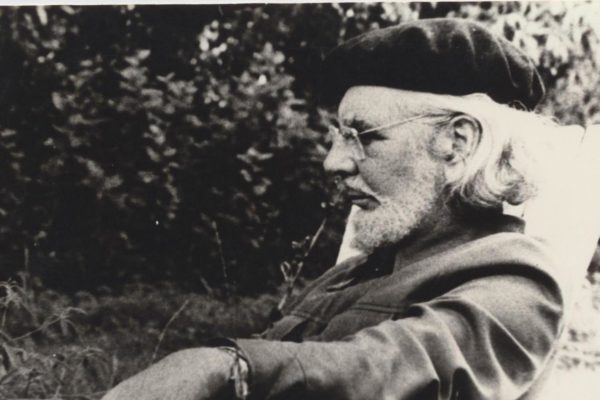AUSTIN, Texas — The archive of Nicaraguan poet, priest and political activist Ernesto Cardenal will open in November at the Nettie Lee Benson Latin American Collection at The University of Texas at Austin.
Admired and controversial, Cardenal is a towering figure in Central American culture and politics. He is a multifaceted poet who incorporates history and science in his verses, and a priest who defied the Catholic hierarchy by engaging in a revolutionary armed conflict and in the ensuing left-wing government.
The archive features rare editions of Cardenal’s writings, translations of his poetry, interviews, photographs, videos, newspaper clippings, documentaries about his life and work, and hundreds of letters to and from key protagonists of Nicaraguan culture and politics.
Files relating to Cardenal’s activities as minister of culture during the 1980s Sandinista government are currently being digitized. The originals will be given to the Historical Institute of Nicaragua and Central America, or Instituto de Historia de Nicaragua y Centroamérica.
Among the archive’s treasures are letters to Cardenal from Trappist monk Thomas Merton, an influential figure in Cardenal’s life. Merton’s reflections on literature, spirituality and politics reveal deep anxiety about the nuclear threats of the 1960s along with distrust for the two superpowers that vied for supremacy in the world.
Cardenal has been called one of the last of a visionary generation of activist/artist priests that at one time included, to name a few, Gustavo Gutiérrez, Paulo Freire and Jon Sobrino.
“Ernesto Cardenal is one of Latin America’s foremost public intellectuals,” said Virginia Garrard-Burnett, professor of history and director of LLILAS Benson Latin American Studies and Collections. “A renowned poet and political activist, Cardenal has spoken out tirelessly and eloquently on behalf of the poor, the marginalized and the forgotten for well more than half a century. It is our great privilege that he has decided to safeguard the corpus of his writings to LLILAS Benson, where they can be studied and appreciated by future generations.”
The Ernesto Cardenal archive complements and enriches numerous historical and literary collections already housed at The University of Texas at Austin. These include the ongoing Archiving the Central American Revolutions Initiative; Revolution and Counterrevolution in Guatemala, 1944–1963; the José Revueltas Papers; and the Magda Portal Papers (all at the Benson Collection), as well as the Gabriel García Márquez archive and El Corno Emplumado Collection (both at the Harry Ransom Center).
“The opening of the Ernesto Cardenal papers will offer tremendous opportunities for researchers from all over the world to make new discoveries and advance scholarship about this extraordinary man and his lasting contributions to Nicaraguan history and culture,” said Julianne Gilland, director of the Benson Latin American Collection.
LLILAS Benson Latin American Studies and Collections will celebrate the opening of the Ernesto Cardenal Papers on Tuesday, Nov. 15, with a roundtable and a poetry reading by Cardenal himself. The event will be free and open to the public.




